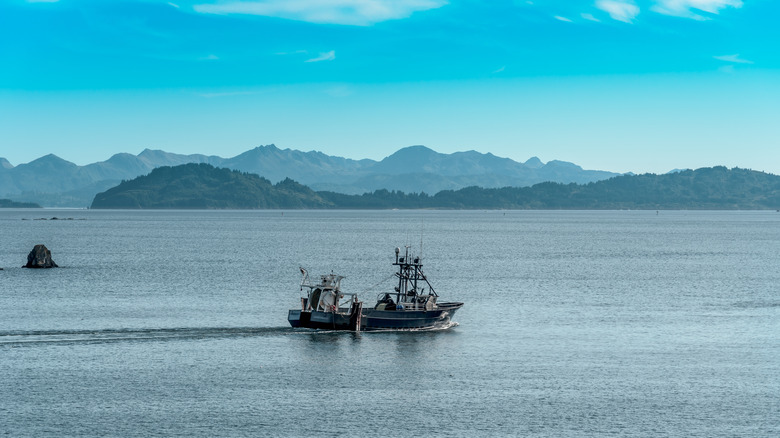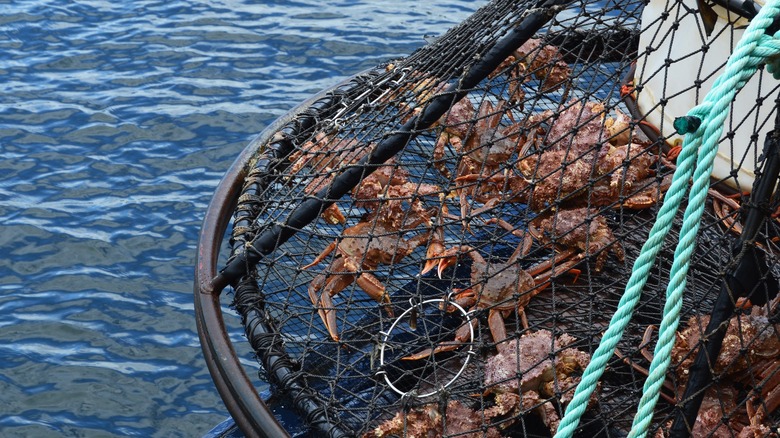Alaska Canceled Its Snow Crab Season For The First Time In History. Here's Why
With towering glaciers surrounding much of the region, not to mention rolling hills and valleys abounding, Alaska's natural beauty is revered by many, according to National Geographic. People might visit the state for one of its many national parks or even for a chance to witness the aurora borealis, but another one of its most popular draws is the abundance of wildlife. Some of Alaska's most recognizable mammals are its black and brown bears, but the region also hosts a thriving population of sea creatures like beluga whales, walruses, and more.
In fact, Food & Wine reveals, one of the region's most popular forms of wildlife — though more for commercial reasons — is its snow crab. Many people anxiously await the Bering Sea snow crab season each year, and some fisheries even rely almost entirely on the success of the multimillion-dollar operation, according to The Seattle Times. But in a shocking turn of events, Alaska has now canceled its regular snow crab season for the first time ever due to a very worrisome problem — a problem that, as Alaska Department of Fish and Game researcher Ben Daly told CBS News, could be a "canary in a coal mine" signaling future distress for the snow crab and other cold-water species.
Alaska's snow crabs are disappearing
The severely dwindling population of Alaska's snow crab has prompted the cancellation of this year's crabbing season, as conservationists work hard to determine the cause and restore the once-bustling crab species. While the Bering Sea is usually known for a thriving population of snow crabs (which is why many boats find themselves afloat in Alaska), things have taken a turn for the worse and potentially left many fishermen facing business closure. As Alaska Department of Fish and Game biologist Miranda Westphal explained to Alaska Public Media, the population of the species has declined by 90% in just two years, as surveyed in 2021. That is estimated to be over a billion crabs gone — far below the "record recruitment" that was expected — and marks the largest population decline in history.
As far as a reason for the sharp fall, researchers with the Alaska Department of Fish and Game pointed the blame to a number of factors such as the warming of the crabs' watery environment and even disease, reports CBS News. Still, no definite cause has been found, so for now, the Alaska Department of Fish and Game will focus on conserving the communities of crab that still survive and working to rebuild. But according to The Seattle Times, the cancellation of snow crab season has already done damage and is on the cusp of putting even some third-generation fishermen out of business for good.

